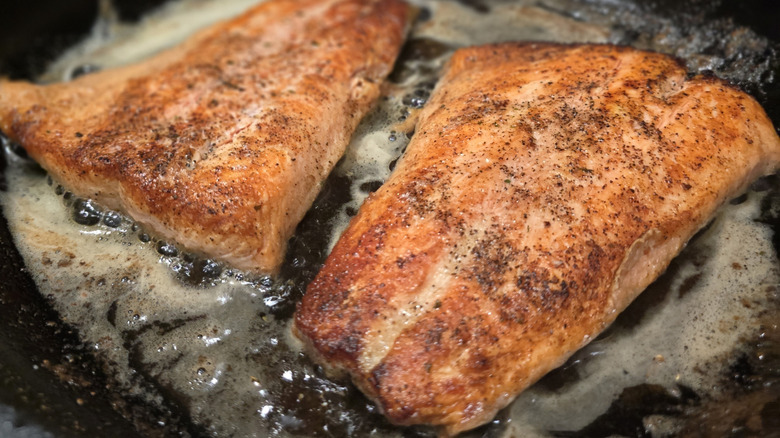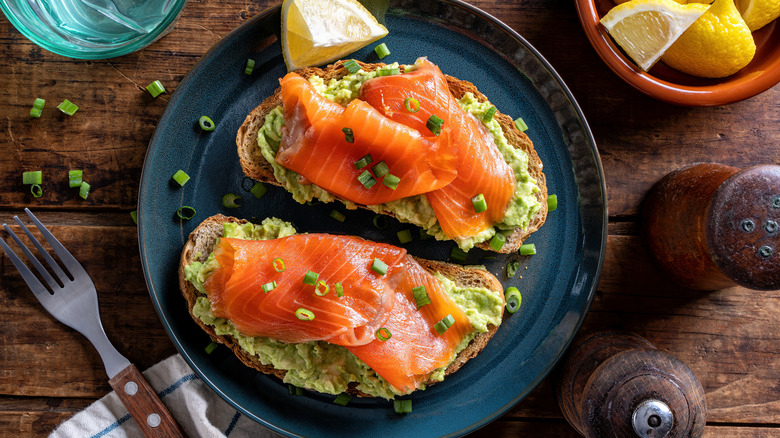Why Steelhead Trout Is The Perfect Fish Replacement For Salmon
The taste of salmon, even with the differences between wild and farmed salmon, is a fairly distinctive flavor. It's rich in an oddly subtle way, and it's meaty and oily and a little bit buttery. It's unique enough that salmon dishes aren't similar to other fish dishes, like the even more umami tuna or the mildly sweet tilapia. That said, if you're looking to adjust the flavor of a salmon fillet or if you're cooking on a tighter budget, plenty of chefs use steelhead trout as a salmon substitute, and it works well.
Steelhead and salmon are vaguely close relatives, both being fish in the Salmonidae family that alternate between freshwater and the ocean during their lives. Beyond the fact that they look similar, both in the wild and on your plate, steelhead trout and salmon have a similarly delicate flakiness to them, and their differences in taste are minor enough that your average dinner guest likely won't notice the difference unless you point it out. Steelhead trout is also typically cheaper on top of that. It's not entirely the same, though; steelhead is softer and less fatty than salmon, and it's more mild and has a bit less of that fishy taste that salmon has in abundance.
Steelhead is the cheaper salmon relative
Steelhead's cheaper cost is a plus, but perhaps more importantly regarding the bigger picture, it's easier to find ethically sourced steelhead than salmon at the grocery store — which is certainly doable but requires some research. U.S. steelhead trout farming has a good rating from the Monterey Bay Aquarium's Seafood Watch, which is one of the better authorities on environmental impacts of seafood globally. Farm-raised trout are usually kept in highly regulated raceway systems which mimic freshwater rivers, which are considered low pollution risks that keep the more endangered wild species off diners' plates. Salmon can also only be safely farmed at certain parts of year to protect their breeding cycle, while fresh steelhead can be farmed all year.
Any variety of either fish is fairly nutritious regarding omega-3 acids and other vitamins, although steelhead usually contains less fat. Steelhead is easy to substitute in restaurant-worthy grilled salmon fillets with potatoes and green beans and all the works on the side, but you'd also be surprised how well steelhead works in lox. It depends slightly on the type of salmon, too: steelhead may be noticeably less meaty than Chinook salmon, but could be a sneaky, cheap swap for coho salmon.

